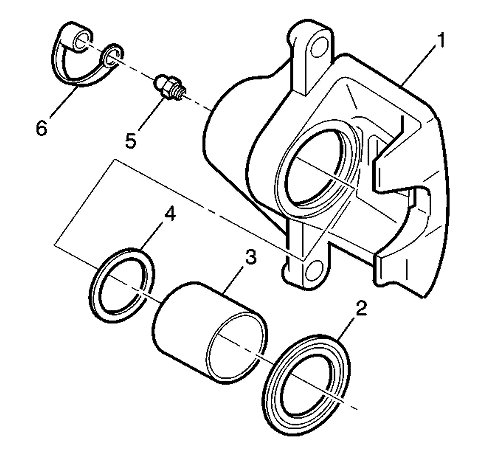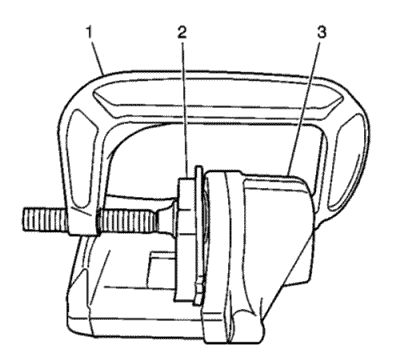Warning: Refer to Brake Dust Warning in the Preface section.
Warning: Refer to Brake Fluid Irritant Warning in the Preface section.

- Inspect the brake calliper housing (1) for cracks, excess wear, and/or damage. If any of these conditions are present, the brake calliper requires replacement.
- Inspect the calliper piston dust boot seal (2) for cracks, tears, cuts, deterioration and/or improper seating in the calliper body. If any of these conditions are present, the brake calliper requires overhaul or replacement.
- Inspect for brake fluid leakage around the caliper piston dust boot seal (2) and on the disc brake pads. If there is any evidence of brake fluid leakage, the brake caliper requires overhaul or replacement.

- Inspect for smooth and complete travel of the calliper piston, or pistons, into the calliper bore, or bores:
The movement of a calliper piston into a calliper bore should be smooth and even. If a calliper piston is frozen or difficult to bottom, the calliper requires overhaul or replacement.
| • | For single piston caliper applications, insert a discarded inner brake pad (2) or block of wood in front of the piston. Using a large C-clamp (1) installed over the body of the calliper (3) and against the brake pad or block of wood, slowly bottom the piston in the bore. |
| • | For dual piston caliper applications, insert a discarded inner brake pad (2) or block of wood in front of the pistons. Using 2 large C-clamps (1) installed over the body of the caliper (3) and against the brake pad or block of wood, slowly bottom the pistons evenly into the bores. |

